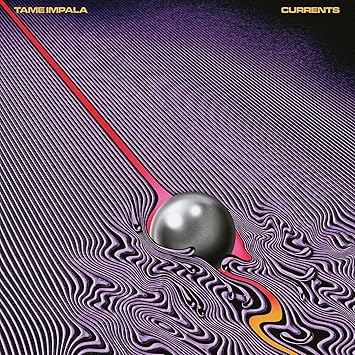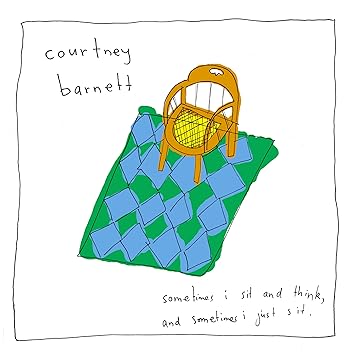2015 was a strong year for me, even if it doesn't show up in raw numbers. The best book is the one you're about to read, and the worst is the one you never started. Here's the 5 best fiction and 5 best non-fiction books I read in 2015, in alphabetical order as usual.
If you want to read way more of my words, Goodreads is the place!
If you want to read way more of my words, Goodreads is the place!
Fiction:
Kamel Daoud - The Meursault Investigation. Camus' The Stranger never hit me as hard as I felt it was supposed to. As a philosophical delivery vehicle for existentialism/absurdism it might be about as good as you could reasonably expect, but not only do I not find absurdism all that compelling, but the actual narrative of the book was kind of boring, with a strange and almost lizardlike lack of passion on every page. On the other hand, this "counter-inquiry" into the events of The Stranger is far more satisfying. It's told as a conversation between the main character Harun, the brother of the nameless Arab victim, and you the reader over successive rounds at a bar in Oran. He's trying to tell the "other side" of the story, openly acknowledging Camus' fame and influence while working as a corrective to the "excesses of boredom" of the original. It is both a corrective and homage - in almost every way, Daoud is aiming at the same themes while putting his own, often opposed perspective on them, and in many cases offering a take I find more appealing (that he's drunk the whole book makes his passion more relatable as well).
Elena Ferrante - My Brilliant Friend. A powerful and absorbing novel that so neatly balances the narrator's emotional interior life with the world around her that you absorb the whole thing without even noticing. I've often seen this novel, the first in a quadrilogy, being described as being about "female friendship", which it is, but it's about much more than that: the development of a personal identity, the pressures of social expectations, the way that circles of loyalties interact, the toll of violence and poverty on people's lives. And the way that it touches on all of those things while still taking place in 1950s Naples, using the protagonist's inner life to construct the whole world around her, is so masterfully done that all you can do is finish the book as fast as possible.
Michel Houellebecq - The Possibility of an Island. Reading negative reviews of Houellebecq novels is a good way to be amused for about five minutes, because, aside from the rare honest ones where the reviewer frankly states they just didn't care for him, it's pretty obvious that most of his detractors know that something is going over their heads, but they can't admit out loud that they don't get the joke. I say that as a confirmed fan, but I just don't see how it's possible to give this bleak, hilarious, passionate, misanthropic novel a fair read and not come away moved in some fashion. It's a science fiction novel that's not really interested in the genre's trappings, a religious novel that treats faith as a simple yet beguiling scam, and a novel about love with some of the least romantic passages imaginable. And, best of all, unlike with a Camus novel, who he's frequently compared to, it's actually really funny.
Herman Melville - Billy Budd and Other Stories. I'm glad that Moby Dick isn't the only good thing Melville ever wrote - after having finally actually read it, it was great to be reminded how satisfying it is when something that's been endlessly lauded manages to live up to that reputation. Melville's short stories don't have the iconic status that Moby Dick does, but no one capable of turning out that masterpiece could fail to show some signs of that talent for exploring human nature in his lesser works, and there's plenty for anyone who likes his distinctively discursive but acute style to enjoy here. "Bartleby, the Scrivener", "The Encantadas", and "Benito Cereno" are excellent, with other stories like "Billy Budd, Sailor" still being highly enjoyable.
Virginia Woolf - Mrs. Dalloway. A very distinct work of Modernism, even though I found it extremely difficult not to compare this to Ulysses, another obvious Modernist reference point. The taking-place-in-a-single-day conceit, the stream-of-consciousness aspect, the side-paths and digressions, all of those techniques are also here, but instead of Ulysses' ocean of references, puns, and illusions, this is more like a flood. It took me a while to get into it, as I struggled through the various currents of memories, perspectives, and thoughts, but eventually I came to enjoy Woolf's almost absurd interest in the most minute details of life. I always respect writers who can bring out the drama of everyday things, and her almost determined whimsy took what could have been a terminally dull anecdote about a woman's adventures planning a dinner party and revealed a surprisingly large world beneath the surface, even if ultimately I didn't find the novel all that pleasurable on a visceral level.
Non-Fiction:
John Brooks - Business Adventures. Just like for a lot of people, it was the joint recommendation of Bill Gates and Warren Buffett that brought this out-of-print essay collection to my attention; "the best business book I've ever read" carries some weight from such luminaries. To cut to the chase, I didn't find this compilation of 1960s vintage New Yorker essays to be quite as peerless as Gates did - James Stewart's Disneywar is probably my current favorite general business work - yet they're still interesting and readable. No one would accuse Brooks of excessive devotion to brevity, many of them lack a "point" in the sense of an immediately digestible bit of wisdom, and there's no consistent theme, but Brooks' lively prose style and attention to detail make this a very worthwhile read.
Martin Ford - Rise of the Robots. The Star Trek replicator has long been a dream of humanity - completely automated provision of the means of subsistence, with the potential to eliminate unprecedented amounts of drudgery. Far from everyone being freed to pursue their dreams of becoming starship captains, though, it's entirely possible that the current dramatic increase in automation will simply put humans out of work, whether those humans are low-wage burger-flippers, manufacturing workers at home or offshore, or white-shoe corporate lawyers. Ford looks at how the immense transformation of the global economy is both helping and hurting workers, detouring into some of the more outlandish science fiction possibilities of automation, before settling on what increasingly appears like the only viable solution to a sufficiently mechanized economy: a guaranteed income that ensures everyone shares in the coming bounty.
Larry McMurtry - In a Narrow Grave. Naturally the infamously unsentimental author of the "Ever a Bridegroom" essay on the deplorable state of Texas literature would be loath to contain his opinions to that single 1981 broadside. Published in 1968, this essay collection, which is really a single meandering intellectual journey occasionally interrupted by chapter breaks, moves from film to literature to travel to family history, but its subject is always McMurtry and his thoughts on Texas, both as a real place and as a subject. And, as Texas contains multitudes, so does this book, as it contains his thoughts on everything from cowboy movies, like the adaptation of his novel Horseman, Pass By into the film Hud, to cowboy cities like his own beloved Houston, at the time in its rapid transitional phase from collecting the dregs of the frontier to the home of the Astrodome.What makes his writing different from the countless others who have unleashed their thoughtless gushing, positive or negative, about Texas is that he's always aware that while sentimentality might be a great thing to feel, unless it's presented honestly it will always seem cheap.
Michael Shermer - The Science of Good and Evil. The true nature of morality is one of the most-pondered concepts in human history, so it's pretty hard to say anything about it in the 21st century that isn't trite, repetitive, or wrong. Shedding the religious baggage from morality is all well and good, the difficulty is then having something interesting to say about where moral concepts come from, what they mean in daily life, how they inform what actions people should take, or how they should be judged against each other. Shermer provides a capable overview of non-religious theories of morality and free will, with a basis in recent research into evolutionary psychology, social dynamics, and neuroscience. The title inevitably promises too much, but he actually succeeds at adding to an already crowded conversation.























